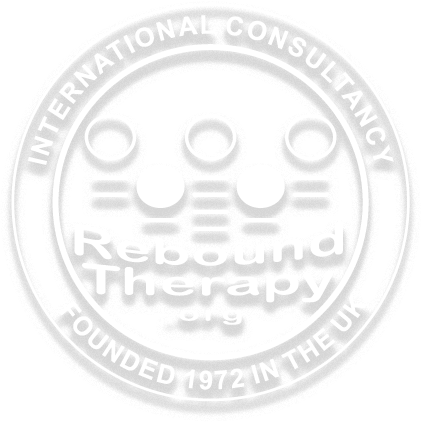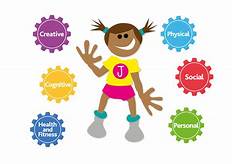Curriculum Executive Summary
Intent
Intent: What is Nancealverne aiming to achieve through its curriculum?
- Leaders construct a curriculum that is ambitious and designed to give all our learners, particularly the most disadvantaged, and that have special educational needs and/or disabilities (SEND) or high needs, the knowledge and cultural capital they need to succeed in life
- To provide an outstanding broad and balanced education, which is personalised to the individual needs of each pupil.
- To provide a curriculum that is coherently planned and sequenced towards cumulatively sufficient knowledge and skills for future learning and employment.
- Through the identification of the appropriate curriculum pathways we secure outstanding outcomes in developing pupil’s academic achievement, independence, engagement and social skills.
- To provide a calm, learning focused environment, which is safe, caring and nurturing.
- To develop and maintain strong and mutually supportive relationships with parents and carers.
- To provide a holistic education, which incorporates guidance and strategies from support agency partnerships e.g. speech and language therapists, occupational therapists, physiotherapists etc.
- To increase resilience and develop pupils’ ability to self-regulate.
- To develop pupils’ essential life skills, developing their knowledge and the cultural capital they need to succeed in life (personal development).
- To promote physical and emotional well-being for all learners.
- To provide informed access and progression within personalised Accreditation routes.
- To prepare pupils for the next stage of their education.
- To ensure all pupils leave Nancealverne with outcomes that reflect the best of their ability.
- To ensure the best possible long term outcomes are available for all pupils.
- To ensure Nancealverne values are at the heart of learning.
Implementation
Implementation: How is the Nancealverne Curriculum Delivered?
- There are three main learning groups within the school: Severe Learning Difficulties (SLD), Autistic Spectrum Disorder (ASD) and Multi-needs (PMLD).
- Within these groups we have three learning pathways, identified as Ready to Learn (R2L), Bridging to Learn (B2L) and Learning to Learn (L2L).
- Fundamental to any personalised learning pathway is the schools’ response to outcomes identified via Education, Health and Care Plans (EHCP) which are fully implemented in any one of the pathways being pursued.
- EHCP outcomes identified through the Annual Review process are addressed/assessed throughout the academic year. Targets identified enable learners to work towards longer term aims ensuring development of key skills which secures progress over time within the areas specified. EHCP outcomes are addressed within all personalised learning routes regardless of pathway taken.
- All pupils have full access to a broad and balanced curriculum which is differentiated to meet pupils’ learning needs and styles.
- Our curriculum is designed to be challenging and appropriate to the pupil’s stage of development.
- Preparation for next stage in learning including transition between Key Stages/Pre-/ Post-school. The school recognises the importance of effective transition; through assessing pupils holistically, using a range of assessment frameworks, the school is able to identify personalised learning needs, achievements (progress) and next steps for learning.
- The school ensures that accreditation is meaningful and clearly reflects the skills and understanding which students need to develop. It is imperative that accreditation provides value in the work that students have pursued through their bespoke curriculum/personalised learning route and all accreditation strengthens learning.
- Our curriculum offers significant cross-curricula learning opportunities to ensure pupils make significant personal development.
- Our core subjects are English, Maths, PSHE, Physical Development and Science.
- We have a strong focus on Physical Education and Physical Development. We offer a full Physical development programme including Rebound Therapy, Move and Real PE programmes.
- Our curriculum covers a wide range of core and foundation subjects. We dedicate substantial time to both.
- Our curriculum is designed to build and expand on previous skills and subject knowledge.
- We offer a wide range of qualifications, which are selected to appropriately challenge, based on the pupil’s stage of development.
- Nancealverne recognises the importance of ensuring long terms curriculum aims develop pupil’s interests and aspirations. We consider it vital that the voice of all learners is recognised and is, importantly, acted upon. As part of the Careers and Work Related Learning curriculum and at Annual Reviews, each learner is provided with key information identifying how the curriculum will support their aspirations.
- By building respectful relationships with parents/ carers, the school secures effective partnerships. Through Annual Review and termly pupil progress meetings the school elicits the views of parents/ carers determining how such views can enhance educational opportunities. Termly reports to parents/ carers evidence pupil progress over time in relation to bespoke personalised curriculum /learning pathway.
- The school works closely with Multi-Agency Teams incorporating advice and recommendations received from them into the pupil’s school day (e.g. – well-being/therapy plans). To secure effectiveness the school monitors progress (where appropriate) within such plans; through our bespoke provision the school is able to address these through IEP’s (e.g. – communication targets) or within structured teaching/learning sessions (e.g. – music therapy).
- Enjoyment and engagement in learning is incredibly important to us, we therefore also run regular whole school theme days throughout the academic year.
Teaching and Learning
- All classes are led by qualified and experienced education professionals.
- All staff have additional training on supporting learners with Special Educational Needs.
- All staff have good knowledge of the subject(s) and courses they teach. Leaders provide effective support, including for those teaching outside their main areas of expertise. All staff are supported by experienced subject leads.
- All staff check learners’ understanding systematically, identify misconceptions accurately and provide clear, direct feedback. In doing so, they respond and adapt their teaching as necessary.
- A rigorous approach to the teaching of reading develops learners’ confidence and enjoyment in reading. At the early stages of learning to read, reading materials are closely matched to learners’ phonics knowledge.
- There is a full Continuous Professional Development (CPD) available for all staff. This includes access to National Professional Qualifications (NPQs).
- Quality of teaching is observed and reviewed by Subject Leads (Middle Leaders) and Senior Leaders. There is also an external moderation of teaching schedule.
Assessment
- Teachers and leaders use assessment well, for example to help learners embed and use knowledge fluently or to check understanding and inform teaching. Leaders understand the limitations of assessment and do not use it in a way that creates unnecessary burdens for staff or learners.
- Nancealverne uses rigorous assessment system Evidence for Learning to collate progress evidence towards individual personal learning goals.
- Rigour in assessment; progress is demonstrated from each individual learners starting point.
- Assessment of progress over time mirrors each of the pupils learning pathway and personalised learning route; assessment of progress is evidenced via pupil progress files which are moderated over the academic year. Bespoke assessment routes and associated data sets evidence if pupils are making expected progress, exceeding expectations or if skill sets are emerging.
- Progress meetings with Senior Leaders are held at least termly. Pupil progress is also examined at regular line management meetings.
- Pupils’ work is evidenced in subject books, and through 'Evidence for Learning'. These are moderated across Key Stages.
- Nancealverne analyses data from a range of sources to effectively evaluate each pupil's performance. This allows us to determine whole school performance, moderate our own practice and plan for further improvement.
- Teachers and senior leaders use a range of formative and summative assessment procedures to assess progress and attainment.
Impact
- The majority of pupils meet or exceed their expected progress. Learners develop detailed knowledge and skills across the curriculum and, as a result, achieve well.
- Detailed analysis of outcomes and pupil progress indicates that there is little statistical significance between the performance of key groups. Where any small differences are identified strategies are implemented swiftly.
- Pupils make significant progression and achieve within personalised Accreditation routes.
- Parents/ Carers views are listened to and acted upon. By building respectful and positive relationships with parents/ carers, the school secures effective partnership working.
- The spiritual, moral, social and cultural development of pupils is paramount and at the heart of the curriculum delivery.
- Pupils are supported to develop outstanding behaviour over their time at Nancealverne, increasing their ability to self-regulate.
- The skilful use of a total communication approach supports pupils’ learning very effectively. Pupils can take a full part in lessons. This results in them making progress and having wider access to the community.
- Pupils are well-prepared for the next stage of their education and the large majority transition to mainstream colleges. No Nancealverne pupil has left Nancealverne Not in Education, Employment or Training (NEET) in the last five years.
- Leaders have established a well-structured curriculum to promote work-related learning. This has resulted in pupils having a clear understanding of the different options available when they leave Nancealverne. They are empowered to make informed choices about their future.










